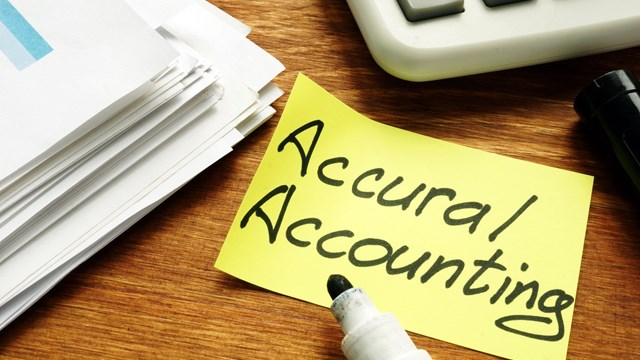The Roman god Janus had two faces that allowed him to look backward into the past and forward into the future. When thinking about end-of-the-year association finances, boards would do well to take a lesson from Janus and look back at expenses from 2011 and ahead toward obligations in 2012.
December is the month to take stock of the association’s overall financial management, its budgeting and accounting practices, and to prepare for filing federal and state income tax returns.
Even though most homeowners associations don’t generate much in the way of net income, they must still file annual income tax returns to the IRS. (States have their own tax forms that must also be filed.) The most common forms are the 1120 and 1120-A. A third form, 1120-H, is more basic and straightforward to fill out, says David A. Levy, CPA, of Brookline, Massachusetts, but the disadvantage is that it taxes at a higher rate. (For more details about tax forms, see the July 2008 New England Condominium issue on Community Budgets & Finance, available online.)
Choosing which IRS form to use can be difficult, because those for HOAs don’t look like the forms people are used to. “They’re more like mongrels,” says Mark Love, CPA, of Love, Jarominski & Raymond LLP in Worcester, Massachusetts. “It’s easy to fill out the incorrect form, which can be time consuming and expensive to rectify.”
Data for tax returns is drawn from regular financial statements generated by the management company or, in the case of a self-managed association, by the treasurer or CPA. But it is the board’s responsibility to monitor these reports. “If you have active, involved board members who take their fiduciary responsibilities seriously, they will examine monthly statements,” says Levy. By the time the board arrives at the end-of-year reckoning, its members are in a better position to assess the association’s financial health and are less likely to encounter unwelcome surprises.
Where the CPA Fits In
Certified public accountants offer three basic levels of professional financial services: compilation, review, and audit. A compilation involves drawing together the useful financial information, but does not include analysis or evaluation. In a review, the CPA analyzes the financial statements and provides some assurance that good practices are being followed. An audit takes the oversight to a higher level, in which the CPA investigates the association’s actual financial structure and internal controls, as well as evaluating the statements, says Levy.
Association bylaws and state regulations govern how often a review or audit must take place. For smaller associations, a yearly review is likely all that’s needed, with an audit on the third cycle, says Levy. Reviews and audits are begun when the books are closed, generally within the first few months of the New Year.
The Budget
The majority of associations follow the calendar year rather than the fiscal year cycle. In a best practices scenario, the new budget would have been voted on by November 2011 to take effect on January 1, 2012. But the reality is a bit messier. “We see a disproportionate number of budgets done at the last minute,” says David J. Levy of Sterling Services, a management company in Holliston, Massachusetts.
Well-run associations draft a budget at least three months in advance of the approval vote. But the work of gathering costs for services should start much earlier. For example, prices for services might be collected in summer, a draft budget produced in September, an open community meeting held in October, and the final budget voted on in November.
The budget process goes more smoothly, Sterling’s Levy says, if board members—and owners—understand how critical the budget is to the running of the property and educate themselves about the financial situation. By being familiar with the books, and in particular with the reserve account, board members can speak knowledgeably to owners who might be promoting a pet improvement project. Having hard numbers in hand can counteract the inevitable pressure from owners wanting expensive new amenities to be added to the property.
A “straw man budget” is what Paul Pronsky, treasurer for the 48-unit Quinsigamond Shores Condominium Trust in Shrewsbury, Massachusetts, draws up in late September or early October, before he meets with the board. In it, he tallies the three categories of projects on the table for next year: Those that need to be done, those that are desired, and those that would be nice to do. Usually these projects fall under the heading of maintenance, he says. Then he assigns dollar amounts based on the previous year’s spending and any projected increases. By looking at these amounts in the context of capital and reserve funds, the board can set priorities and weigh discretionary spending against monthly fees.
By contrast, if an association is “winging it” because of lack of either board participation or management input, December can devolve into a harried, last-minute race to finalize the budget. If the budget gets pushed over into the New Year, it can create chaos, says Levy of Sterling Services. For example, if board members wanted to raise 2012 condo fees because of increased costs, they would have missed the required 30-day advance notice to owners.
The responsibility for record keeping rests with the management company, if there is one, or with the association treasurer. He or she is also responsible for filing the association’s annual federal tax return by March 15, a month earlier than individual taxpayers but the same date as corporations. (The IRS views homeowners’ associations as corporations, whether or not they generate much income.)
Rules about the frequency of reviews and audits are spelled out in the association documents. By adhering to the bylaws, boards and managers reassure homeowners that bookkeeping practices are sound and comply with Generally Accepted Accounting Principles, known as GAAP.
More Like a Small Business
“For a long time, HOAs have been viewed as sleepy little residential complexes, but frankly, they operate more like small businesses,” says Love. “Businesses do a great deal of year-end planning to reduce their taxes and put the best shine on their financial statements.” While condo associations are run differently from businesses, they could take a few lessons from the business world.
He points out that while the IRS doesn’t look at association financial statements, banks and other lenders do. Their confidence in the association is based largely on the board’s oversight of financial matters. Good record keeping also speeds the process of a review or audit, and can save the association money in CPA fees.
Love recommends that boards consider the following as the year draws to a close:
Collect condo fees—This improves the association’s cash position. Just as important, if fees are not collected, boards appear lax on enforcement, which lowers their standing with banks. Failing to collect fees also sends the wrong signal to owners who paid on time, and raises fairness issues.
Pay down your accounts payable—Boards should make sure vendors and service providers are paid in 30 days—if paid earlier, the cash is used up too quickly, and if paid later it hurts the association’s credit standing.
Look at investments, if applicable—Sell the profitable ones, if you have preexisting Loss Carryforwards, so there is less taxable income. A loss carryforward is an accounting technique that applies the current year's net operating losses to future years' profits in order to reduce tax liability. Generally accepted accounting principles (GAAP) specify that loss carryforwards can be used in any one of the seven years following the loss.
Know your tax obligations—Some complexes are seeing income from the sale of “air rights” to cellular phone companies and utilities that erect a cell tower, wind turbine, or solar array on the property. Some receive payment from the rental of a clubhouse or other recreational facility or the use of a laundry room by non-members, which could be taxable.
Review CPA services—Should these be upgraded? Do the condo docs call for an audit or will a review be sufficient? (Check state laws; in Massachusetts, associations with more than 50 units must have an annual review.) Especially if there’s been turnover in the board, it may be worth incurring the additional cost of an audit for peace of mind. When a new treasurer takes over, that person may also ask for an audit, so he or she has confidence in the records. “Finding out that nothing happened is reassuring,” Love says.
Assess future repairs and replacement costs—Is a professional engineer needed to determine what shape the buildings are in, what repairs will cost, what the timetable should be?
Review insurance coverage—Love calls this the “Goldilocks principle,” getting the just-right coverage, neither too much nor too little. Boards should pay special attention if they’ve added a structure to the property that might increase their liability, such as a pool. Also, changes in state insurance regulations may have made rates more competitive, so shopping around may result in lower costs.
Review the organizational structure—Is this the year to hire a property manager, if the association doesn’t have one? The complexities inherent in condo management are often too much for a volunteer board, Love says.
Review banking rules—David A. Levy, the CPA, would add to this list the suggestion that boards also be mindful of changes in banking regulations. Every state has a different set of laws, and while it’s beyond the scope of this article to delve into those affecting each New England state, a CPA would be able to explain any changes on the horizon. Suffice it to say that the “level of documentation has risen. Banks are looking more closely and analytically at the background of the association and into how it is run and how its finances are conducted,” Levy says.
Tools for Record Management
Under GAAP, the manager or treasurer should provide three primary statements: a balance sheet, statement of revenue and expenses, and a statement of cash flow.
Management companies sometimes employ their own controller to handle financial statements, but smaller, self-managed associations may have to rely on a volunteer treasurer, preferably someone familiar with accounting software. Useful tools for HOAs include software from companies such as TOPS and Yardi. A more general small business software often used by associations is QuickBooks.
Whatever the system used to track finances, the board must still comply with the audit rules set up in the association’s legal documents.
Budget Line Items
One task well suited for year-end analysis involves looking back at the previous 11 months’ receipts to evaluate line items and make adjustments to the 2011 budget where needed. For example, if an association budgeted to repair a deck, but it turned out that structural damage necessitated replacement of the deck, then the board might want to move that cost out of the repair column and into the capital fund column, says Jim Collett, president of Essex Management Group. His company, based in Haverhill, Massachusetts, manages 27 associations in Massachusetts and New Hampshire.
It’s also important, thinking again about tax filing, to keep reserve amounts properly identified and separated in the budget. “You don’t want reserve funds commingling with operating expenses,” says Levy, the CPA.
Reviews Support the Tax Return
Because the process of a review or audit dovetails with preparation for tax filing, these CPA-generated reports can support the tax return, and provide crucial documentation in case of an IRS audit down the road.
The tasks of financial oversight may seem daunting, especially if the recently-concluded budget-approval process was difficult. But all these tasks relate to and support one another, and help the board fulfill its oversight responsibilities. Looking backward at the year completed, as well as forward into the New Year, gives boards and owners a sense of confidence about the direction of the association.
If Janus, after whom the month of January was named, knew anything about finances, he would be nodding his head in approval.
April Austin is a freelance writer and a frequent contributor to New England Condominium.







Leave a Comment